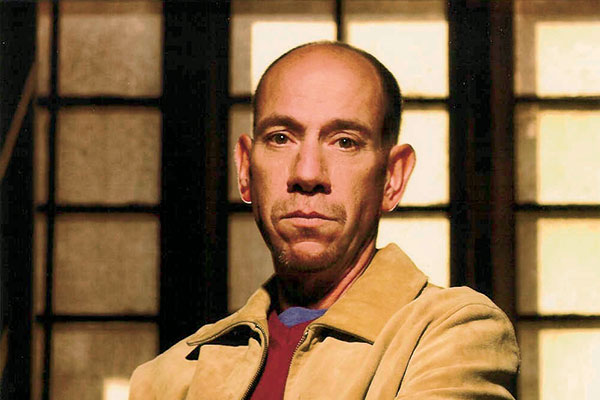Miguel Ferrer – Crossing Jordan Star on the Colon Cancer: Caring for the Aging Program
by Julie McKenna
Miguel Ferrer, star of NBC’s primetime show Crossing Jordan, is helping educate people who have colon cancer and their caregivers about the importance of being involved in medical decisions. Having lost his father, José Ferrer, to colon cancer many years ago, Miguel has teamed up with the Alliance for Aging Research for the Colon Cancer: Caring for the Aging program, which calls attention to the role of a caregiver in ensuring the best possible treatment for people with colon cancer who are 65 and older.
When his father had cancer, Miguel discovered how important it was to be involved in the care and treatment of someone with cancer. In a recent interview with Coping® magazine, Miguel explains his interest in the program. “The issue of being a caregiver became personal for me when I lost my dad 13 years ago to colon cancer. When you see someone who was a role model, a rock of strength, and such a strong man, fall prey to this very difficult disease, it’s hard to watch. It is then that you see the benefit and the difference that caregivers make in this journey.”
Miguel notes that caregivers provide not only emotional support for their loved one, but also serve as a mediator with the healthcare team. That’s what the Caring for the Aging program is all about. “It’s about talking to people, particularly current and even potential caregivers, about the impact they have on the ones they love who are facing these most difficult times in their lives,” explains Miguel. “It’s about encouraging people to step up and face the difficult task of holding the hand of someone in your life who is facing a real scary prospect – potentially a deadly disease. The impact that can have on the outcome of a cancer diagnosis is enormous.”
The Caring for the Aging program has tips and resources to help caregivers and patients seek the best possible care. Also, as part of the program, the Alliance for Aging Research commissioned a survey to investigate the role of caregivers in decision making. Resources and survey results can be found at agingresearch.org.
It’s easy to find excuses not to get involved.
“I hope the end result of this program will be that sons and daughters and other people who are on the periphery will become much more involved with making decisions,” says Miguel. “Interacting with doctors and being a more active support system is important for loved ones who are facing cancer. It’s easy to find excuses not to get involved, but I hope that people will decide to make the commitment to support the people they love.”
Because of his father’s battle with cancer, Miguel says he is now vigilant about his own health. “My dad, in the last year of his life, said ‘I didn’t have the testing I should have and now I wish that I had.’ And he really encouraged me to have screening tests,” Miguel recalls. “So, in that way, he almost acted as a preventative caregiver for me. And I’ve had the tests and checkups; it’s really not a big deal. The peace of mind you get is invaluable.”
It is Miguel’s wish that family members of people who have been diagnosed with colon cancer will check out the Caring for the Aging program to find out how they can help their loved ones. “What I would like to tell people is to just get involved. Get involved in the lives of your loved ones who are facing colon cancer,” Miguel says. “It can really make all the difference in the world for someone to know that they’re not alone in fighting cancer.”
For more information about the Colon Cancer: Caring for the Aging program, visit agingresearch.org.
This article was published in Coping® with Cancer magazine, March/April 2006.
Editor’s Note: Miguel Ferrer passed away on January 19, 2017.


